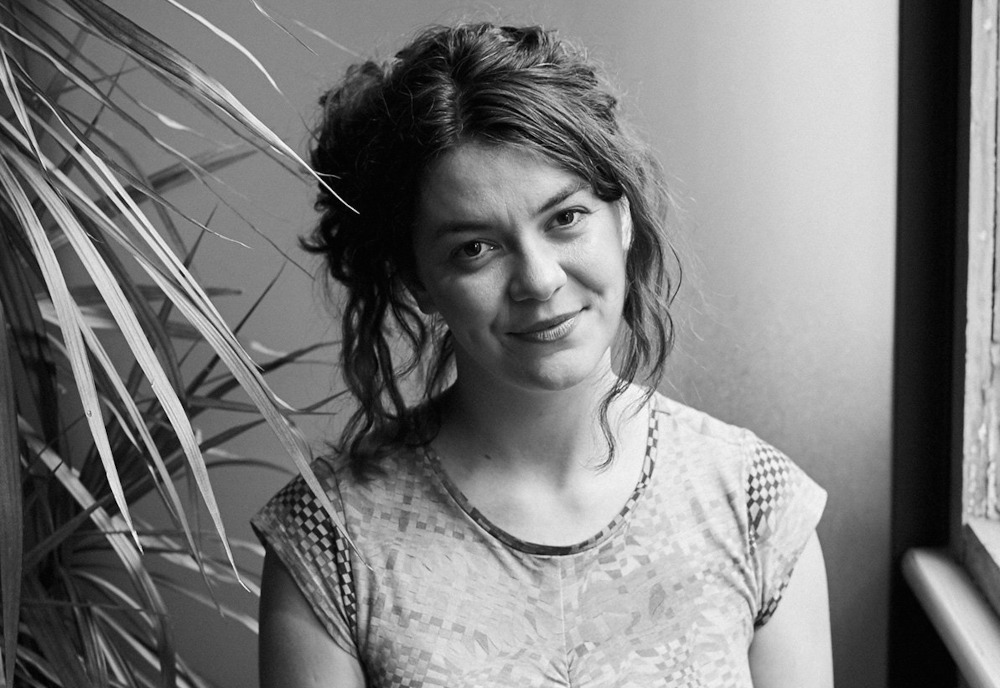
Jazz Money is a poet and artist of Wiradjuri heritage creating work across installation, digital, performance, film and print. Money’s first poetry collection, how to make a basket (UQP, 2021) was the 2020 winner of the David Unaipon Award. This transcript documents the in-conversation between Money and Sara M Saleh, a poet, writer and human rights lawyer. This exchange marked the launch of how to make a basket and occurred on the unceded lands of the Dharug people in December 2021 at Arts & Cultural Exchange (ACE, formerly Information + Cultural Exchange). This event was co-presented by ACE and Sweatshop Literacy Movement. Throughout their conversation Money and Saleh share necessary and valuable thoughts about poetry as a democratic form, the power of story in contributing to personal and collective identities and the ethics and responsibility of writing.
Sara M Saleh: I have a feeling that you will agree when I say that poems are a series of communal, collective generosities; I want to hear your thoughts on that.
Jazz Money: One of the things I really love about poetry is it’s this incredibly democratic form. You don’t need to be able to read or write to engage in poetry. Our ancestors know that. And this Country knows that. We have such an incredible legacy of poetry across this continent and it persists; First Nations languages – they’re poetry themselves. English is this very clunky tool that I work within a lot of the time, and I’m often just trying to make English feel the way that Wiradjuri feels. I also love thinking about this legacy across the history of protests and actions in this continent, mob have always been jumping up and saying these incredible orations that rally the crowd and create energy and passion and power and tell people that our voices are here, and they need to be heard.
And we’re part of that legacy. We’re able to do this and we’re able to use our voices because other people have done that before us. And then we get to create these connections with one another and then going forward with people that haven’t even been born yet.
SMS: I think it is these connections that we have and the fact that we’re on land where storytelling has been happening for thousands and thousands of years. And even, for myself when reflecting on my heritage, I think about the significance of poetry and bringing it back and making it accessible because, for example, in our communities now it’s either seen as a luxury or a hobby or something that you just don’t have time for when you need to put food on the table, but it is – we come from a people who have a history – a very long history – of oral storytelling.
That heritage is so powerful, and actually poetry – one of its main purposes, significantly, was for politics; like oration and bringing the people together in that way, and an extension of critical thought and questioning those in power. All the things that you’re alluding to. And being able to be part of that tradition now – just think about the different ways in which we are part of that – it’s exciting, it’s thrilling, it’s scary, it comes with responsibilities.
JM: It’s a strange contrast to the way I was exposed to poetry when I was going through school, which was overwhelmingly a bunch of dead white guys and it was elite and it was boring and it had nothing to do with me. And then to grow up and realise it’s actually all about us. And all the good stuff is coming out of communities that want to bring everyone together. But that’s a great thing, that’s such a beautiful thing to be able to participate in.
SMS: Plot twist – when you’re actually a part of the community with the origins of storytelling; it’s actually you as opposed to what you’ve been taught to believe.
JM: Yes, when you’ve been told that white guys are the protagonists your whole life …
SMS: And you’re a side note, or barely.
JM: Yes, and then to be part of communities that want to see everyone’s voice heard. I think that’s something that poetry does so brilliantly as everyone can have a voice, and it doesn’t need to be resolved, and it can be complex, and we can figure out those things because the page is just a tool, our voices are a tool. And we put them together and we see what truths are made by putting it all together.









